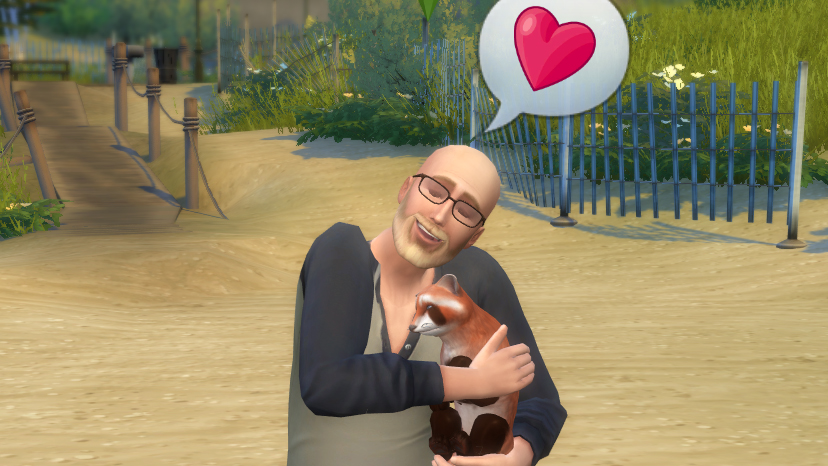The Sims 4 'Insane' trait has been renamed to 'Erratic'
Electronic Arts said it wants to ensure players can enjoy the game without the 'distraction' of inappropriate terminology.

Expand your game with our selection of the best Sims 4 mods.
The "Insane" lifestyle trait in The Sims 4 causes the game's characters to "talk to themselves and have unpredictable emotions": They may also talk to random objects sometimes, or flirt with themselves in a mirror. Or at least, that's what it used to do. As Kotaku noticed and EA confirmed, the trait was recently renamed to "Erratic."
Kotaku actually called out the trait as problematic in a March opinion piece noting that while "insane" Sims behave randomly, real-life mental illness doesn't work that way. "People who live with mental illness don’t behave randomly—they have specific conditions with specific symptoms that can be treated to various degrees," author Gita Jackson wrote. "It’s toned down in [The Sims] 4, but in general Insane sims are more aggressive and less liked by other sims. Even in a game where you can be abducted by aliens or eaten by a Cowplant, this feels like a judgement on people who live with mental illness."
The sometime-aggressive behavior doesn't reflect reality, she wrote—mentally ill people are more likely to be victims of violent crime than to perpetrate it—and possibly even worse, Sims have no options for treatment: "They live with all the real life stigma, but they don’t get any of the real life solutions."
It's a fair complaint given the stigma that surrounds mental illness, and Electronic Arts, which over the years has built a reputation as a diverse and inclusive company, quietly took steps to address it. The April 17 patch notes make no mention of the change, but EA confirmed in an email that the Insane trait was renamed to Erratic.
"Our game celebrates life and the people in it. As language evolves, we want to take the steps needed to ensure players feel they can have a great time without distracting language that is not always current or appropriate," a rep said. "We made the change to better reflect the design of that Trait."
The trait otherwise remains unchanged: Erratic Sims will exhibit all the same behavioral traits that they did prior to the change.
Keep up to date with the most important stories and the best deals, as picked by the PC Gamer team.
Sims 4 cheats: Life hacks
Sims 4 mods: Play your way
Sims 4 CC: Custom content
Sims 5: What we know
Sims 4 building tips: Renovate
Sims 4 challenges: New rules

Andy has been gaming on PCs from the very beginning, starting as a youngster with text adventures and primitive action games on a cassette-based TRS80. From there he graduated to the glory days of Sierra Online adventures and Microprose sims, ran a local BBS, learned how to build PCs, and developed a longstanding love of RPGs, immersive sims, and shooters. He began writing videogame news in 2007 for The Escapist and somehow managed to avoid getting fired until 2014, when he joined the storied ranks of PC Gamer. He covers all aspects of the industry, from new game announcements and patch notes to legal disputes, Twitch beefs, esports, and Henry Cavill. Lots of Henry Cavill.


